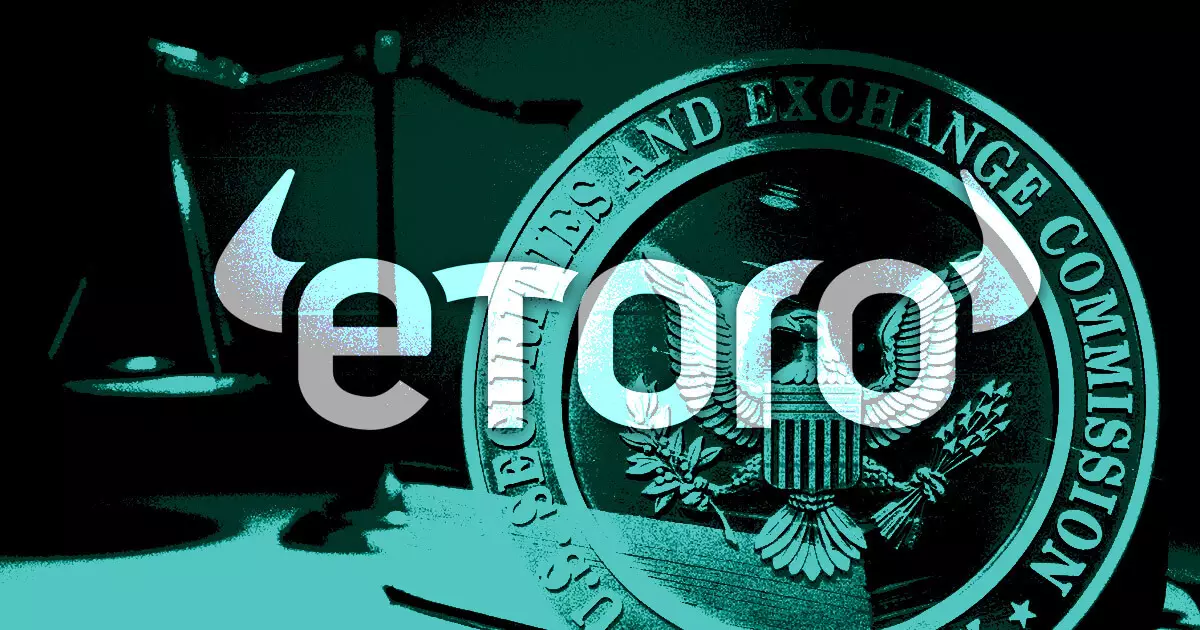In a significant regulatory development, eToro, a well-known trading platform, is set to scale back its cryptocurrency offerings after agreeing to a $1.5 million settlement with the US Securities and Exchange Commission (SEC). The SEC’s investigation unveiled that eToro had been enabling U.S. customers to trade crypto assets classified as securities since 2020, and it had failed to adhere to federal registration mandates. The implications of this settlement highlight the increasingly rigorous scrutiny that crypto platforms face from regulatory bodies.
The enforcement action, rather than exposing an isolated incident, reflects a broader trend in which regulators are actively pursuing cryptocurrency exchanges that may not comply with legal standards. This mirrors ongoing challenges faced by other significant players in the crypto business, including firms like Binance and Kraken. The context of eToro’s situation emphasizes a crucial turning point not just for the platform, but within the broader cryptocurrency ecosystem as well.
Following the settlement, eToro plans to limit its cryptocurrency offerings to just a select few key assets, notably Bitcoin, Bitcoin Cash, and Ethereum. This decision reflects a strategic shift towards regulatory compliance, aligning itself with federal laws and ensuring investor protection as emphasized by Gurbir S. Grewal, the SEC’s Director of Enforcement. The fine and the subsequent actions emphasize eToro’s commitment to transforming its operations in a way that adheres closely to existing laws.
Grewal’s comments underscore the importance of compliance for crypto firms. He remarked that removing tokens deemed as investment contracts not only safeguards investors but also lays a blueprint for other intermediaries navigating the complex regulatory landscape. This approach signifies an attempt to establish a foundation from which new regulations might emerge, particularly as the financial world becomes more intertwined with digital assets.
Future Directions: Navigating Regulatory Frameworks
Yoni Assia, eToro’s CEO and co-founder, expressed optimism about the settlement, indicating it as an opportunity to focus on innovation while adhering to compliance measures. He noted that clarity around regulatory frameworks in regions like the UK and Europe might be mirrored in the US context soon. This expectation reflects a growing belief among industry leaders that a formalized regulatory structure could ultimately benefit the sector and promote growth.
In practice, eToro’s users are encouraged to either liquidate their crypto positions or transfer supported assets to the eToro wallet by specified deadlines. The gradual phasing out of unsupported assets by March 2025 is significant, offering a clear timeline that emphasizes operational change while minimizing disruption for users.
As eToro navigates this transition, its actions could serve as an influential precedent within the cryptocurrency market. The SEC’s crackdown on crypto-related firms positions eToro as a case study for compliance amidst evolving regulations. Other platforms may need to take a page from eToro’s playbook, reassessing their offerings and regulatory adherence before facing potential repercussions.
This unfolding scenario underscores not only the importance of regulatory compliance for individual companies but the necessity for the entire cryptocurrency industry to adapt to changing laws. The ability to operate within a structured regulatory framework will likely determine the longevity and success of crypto marketplaces amid an increasingly cautious regulatory environment.

